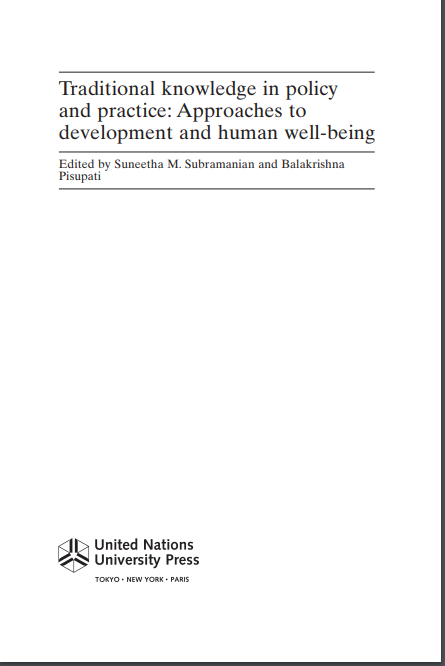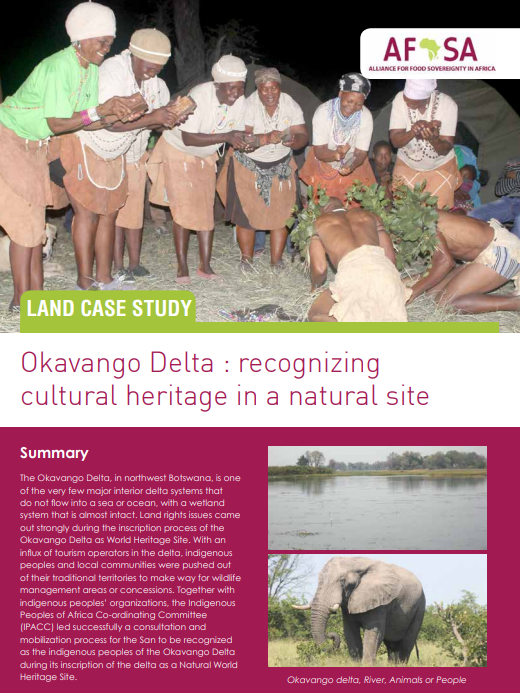
Traditional Knowledge in Policy and Practice: Approaches to Development and Human Well-being
Publication Year: 2010
Author(s): Subramanian SM , Pisupati B
Abstract:
most indigenous and local communities are situated in areas where the vast majority of the world’s plant genetic resources are found. Communities living in biological hotspots have cultivated and used biological diversity in a sustainable way for thousands of years. These communities therefore know better than anyone else how to preserve local flora and fauna. Preserving linguistic diversity is also extremely important for preserving biological diversity. When languages become extinct, associated traditional ecological knowledge in local communities is often lost as well. We cannot afford to let languages and cultures, and the ecological wisdom they have accumulated over centuries, disappear.
Source of Publication: United Nations University
Publisher/Organisation: United Nations University
URL:
https://collections.unu.edu/eserv/UNU:2546/ebrary9789280811919.pdf
Theme: Indigenous People | Subtheme: Indigenous Communities
Related Documents
Case Study
Indigenous Peoples and Boarding Schools: A Comparative Study
Published Year: 2009
Abstract:
At its sixth session, the United Nations Permanent Forum on Indigenous Issues recommended that... Read More
Case Study

Okavango Delta : Recognizing Cultural Heritage in a Natural Site
Published Year: 2020
Abstract:
The Okavango Delta, in northwest Botswana, is one of the very few major interior delta systems... Read More
Policies/Regulations
IFAD Policy on Engagement with Indigenous Peoples: 2022 update
Published Year: 2022
Abstract:
In 2009, the Executive Board adopted the Policy on Engagement with Indigenous Peoples with the... Read More



